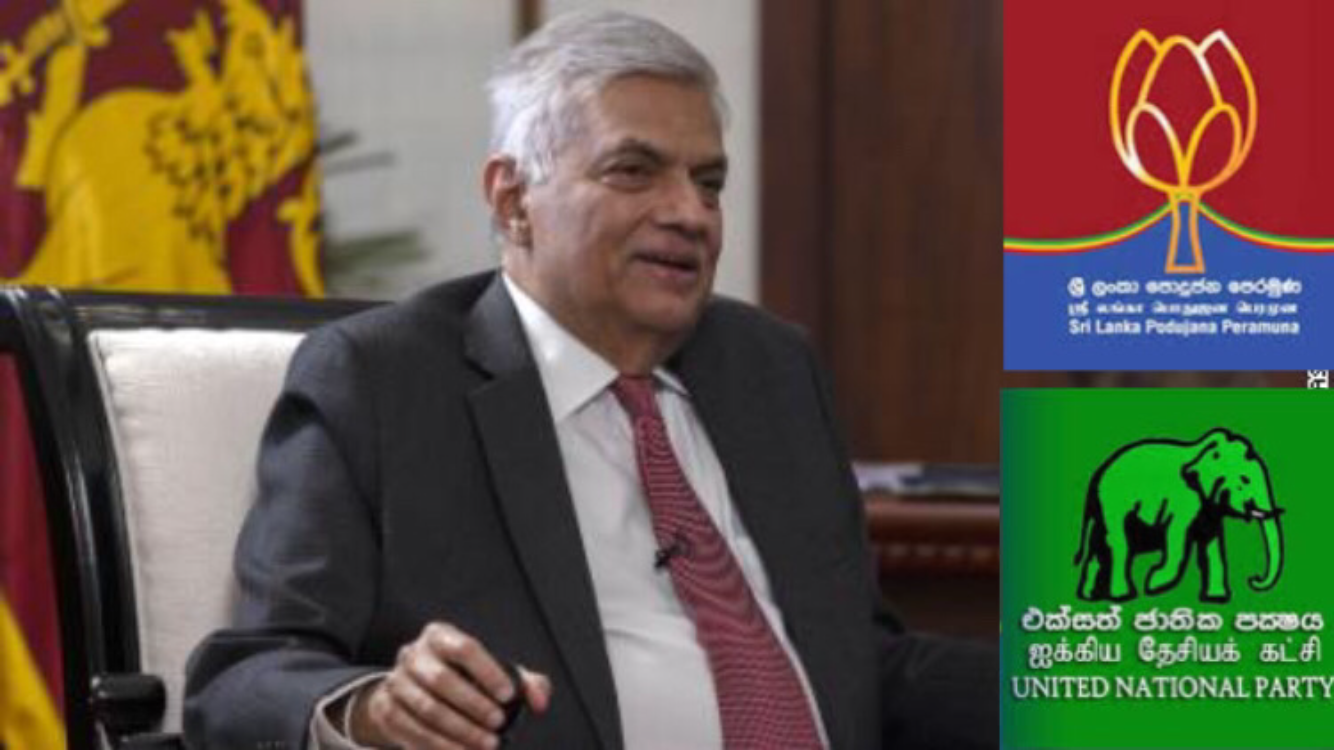Colombo, July 20: Acting President Ranil Wickremesinghe on Wednesday won the Sri Lankan Presidential election with a thumping majority of 49 votes against Dullas Alapahpperuna and Anura Kumara Dissanyake.
In the election held in the Sri Lankan parliament, with its 225 members as the Electoral College, Wickremesinghe got 134 of the 219 valid votes, Alahapperuma got 82 and Dissanayake got three. Voting was by secret ballot, which allowed members to vote freely.
The post of President had been vacant since President Gotabaya Rajapaksa resigned on June 14, having falling from grace. Pressured by a violent agitation on May 9 and July 9, Gotabaya fled the country to Singapore via Maldives and resigned from Singapore by email on July 14.
As per the constitution, Prime Minister Ranil Wickremesinghe assumed office as Interim President and then as Acting President after Gotabaya resigned. Again, as per the constitution, parliament Speaker Mahinda Yapa Abeywardena asked parliament to elect a President from among its members.
Wickremesinghe will be Sri Lankan President till November 2024 when Gotabaya’s term would have ended in the normal course.
Alignments
Wickremesinghe was supported by the single largest party in parliament, the Sri Lanka Podujana Peramuna (SLPP), an outfit of the Rajapaksa clan. The combined opposition led by Samagi Jana Balawegaya (SJB) did not contested but pledged support to Dullas Alahapperuma, a recent SLPP rebel who was expected to split the SLPP.
But clearly, Alahapperuma failed to do that even though he was backed by the “chairman” of the party G.L.Peiris.
There was a lot of cross voting in the opposition. In parliament, the SLPP had 145 members out of a total membership of 225. Out of this, a sizeable a number would have voted for the party candidate Wickremesinghe as without that, Wickremesinghe would not have got 134 votes. This gives a lie to the pre-poll propaganda that SLPP MPs would chicken out because they feared the wrath of public agitators who had burnt many of SLPP MPs’ houses on May 9 and also Prime Minister Wickremesinghe’s house on July 9.
The agitators called the “Aragalaya” had threatened to relaunch the agitation if a candidate of the Rajapaksa party won the election. But no agitation took place, even on July 19, when trade unions had called for a general strike to prevent nominations being filed. The extremists (Wickremesinghe called them fascists) were demanding the resignation of all 225 MPs and a general election to elect a government as per the Aragalaya’s program.
But there was response to the call for an agitation. All services and institutions functioned normally. The Defense Chief of Staff Gen.Shavendra Silva’s warning that disruptors and violent elements would have to bear responsibility of their deeds, worked. The peaceful supporters of the Aragalaya, who were the majority, stayed away isolating the violent elements led by the ultra-leftist Frontline Socialist Party (FSP).
Indeed, if there was violence on May 9 and July 9, it was because the State machinery had collapsed. The Head of State and Government Gotabaya Rajapaksa had lost his marbles and had grievously failed to activate the law and order machinery.
Opposition Took Cues from Agitators
The opposition candidates, Alahapperuma and Dissanayake, on the other hand, had promised the “Aragalaya” that they would go by their agenda, though that was nebulous group with one section putting forth radical left and anti-IMF demands which could not be implemented by any government.
On Tuesday, it was reported that many members of the opposition began to feel that given the dire economic situation in Sri Lanka, the country needs a stable government under a firm leader who would be in a position to freely negotiate with the IMF and the international community for emergency forex injection and debt restructuring.
The domestic supply situation had also improved in the past few days with ships with fuel and cooking gas arriving and with the streamlining of the distribution system. Acting President Wickremesinghe had imposed a State of Emergency to keep supplies flowing. That worked, giving confidence to a number of MPs who wanted a government which will work with single-minded devolution and also see that its writ runs in the land.





